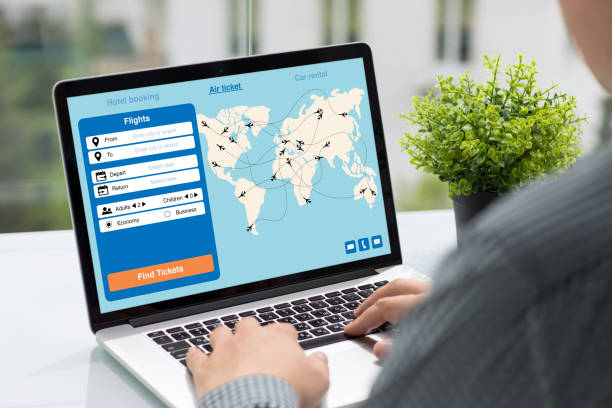A career as a travel agent offers the opportunity to create unforgettable experiences for travelers while monetizing your love for adventure. To excel in this profession, certain qualifications are paramount, not only to navigate the demands of the industry but also to ensure client satisfaction. Strong communication skills, in-depth knowledge of destinations, proficiency in various travel booking systems, sales expertise, and attention to detail are among the fundamental qualifications every travel agent should possess. Let’s delve into what it takes to become a travel agent that clients trust and rely on.
Essential Educational Background

While specific educational requirements for travel agents can vary, a foundational knowledge base is critical for success. Most employers prefer candidates with at least a high school diploma, but additional qualifications can set you apart. Certifications and training such as a travel agent certification or hospitality management vocational courses are highly regarded in the industry. A bachelor’s degree in tourism, travel, or a related field can provide a competitive edge and in-depth understanding of the travel sector. Additionally, language skills are an asset due to the global nature of travel, with fluency in English often a minimum requirement.
- High school diploma or equivalent
- Travel agent certification or vocational training
- Bachelor’s degree in tourism or travel (preferred, not mandatory)
- Additional languages proficiency (highly beneficial)
Innate Skills and Personality Traits
The soft skills and personal characteristics of a travel agent can be as important as formal education. One must demonstrate excellent interpersonal skills to interact effectively with clients and industry partners. A detail-oriented approach is necessary to manage intricate travel itineraries without error. Salesmanship and the ability to persuade come in handy when presenting travel options to clients. An adaptive and resourceful nature enables one to handle the unpredictability typical of travel scenarios. Furthermore, a genuine passion for travel and culture promotes enthusiasm and credibility when advising clients on their travel plans.
- Interpersonal skills for customer engagement
- Attention to detail for itinerary management
- Sales skills for promoting travel packages
- Adaptability to fluctuating travel conditions
- Passion for travel and learning about different cultures
Technological Proficiency and Industry Knowledge
Technology is an integral tool for modern travel agents, both for research and booking purposes. Familiarity with Global Distribution Systems (GDS) like Amadeus, Sabre, or Galileo is essential for accessing real-time information on flights, accommodations, and car rentals. Moreover, a good grasp of Customer Relationship Management (CRM) systems aids in tracking client preferences and history for personalized service. Keeping abreast of travel trends, destination insights, and industry regulations ensures that travel agents provide up-to-date recommendations and comply with travel policies.
- Knowledge of Global Distribution Systems (GDS)
- Competence with Customer Relationship Management (CRM) software
- Continuous learning about travel trends and destinations
- Understanding of travel industry regulations and policies
Understanding Travel Regulations and Documentation
It is crucial for travel agents to navigate the complexities of travel documentation requirements, including passports, visas, and travel insurance. This aspect of the role involves staying current with international travel regulations, understanding visa processes for various countries, and advising clients accordingly to ensure a smooth travel experience. Knowledge of health and safety protocols, especially in a post-pandemic landscape, is also a significant consideration. Clients expect their travel agent to offer guidance on necessary vaccinations, health advisories, and safety measures for international travel.
- Passport and visa process knowledge
- Travel insurance advisement
- Up-to-date with international travel regulations
- Familiarity with health and safety protocols for travelers
Ability to Create and Manage Travel Itineraries
Designing compelling and feasible travel itineraries is a core service offered by travel agents. This requires an inventive mind to craft unique and personalized experiences, combined with the practical skills to schedule activities within realistic time frames and budget constraints. Negotiation skills are also important for securing the best deals for clients. A travel agent must be organized to manage multiple client itineraries simultaneously, maintaining a high standard of accuracy and timeliness in all travel planning tasks.
- Creative itinerary design to suit client preferences
- Practical scheduling of activities and accommodations
- Negotiation skills for securing the best rates
- Organizational skills for juggling multiple client itineraries
Conclusion
In conclusion, becoming a successful travel agent requires a combination of formal education, soft skills, industry-specific knowledge, and technological savvy. Aspiring travel professionals must cultivate a wide range of competencies—from developing in-depth familiarity with different destinations and travel systems to honing the interpersonal skills needed to provide exemplary client service. As the travel industry continues to evolve, those who commit to lifelong learning and adaptability will find the greatest success. Whether you are just starting on your travel agent journey or looking to refine your qualifications, embracing these key qualifications will undoubtedly enhance your career prospects and clients’ travel experiences alike.
